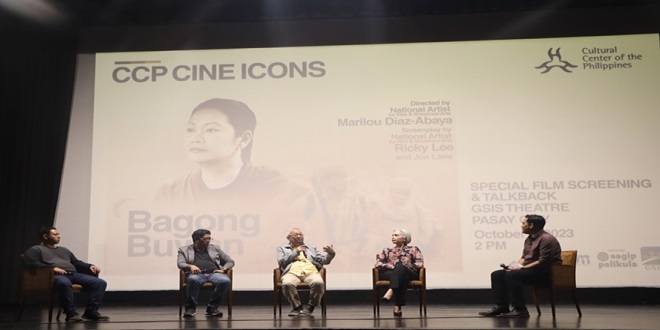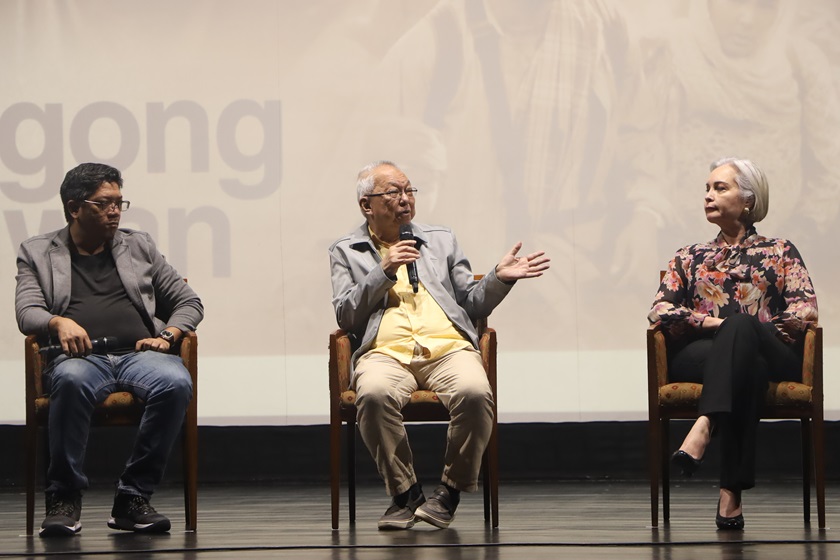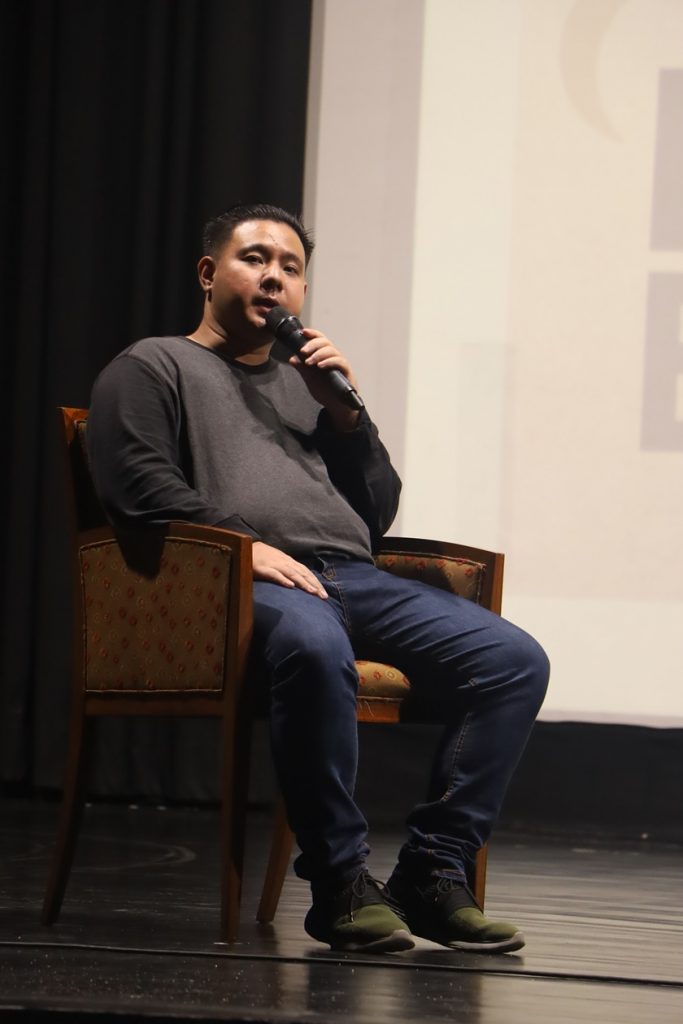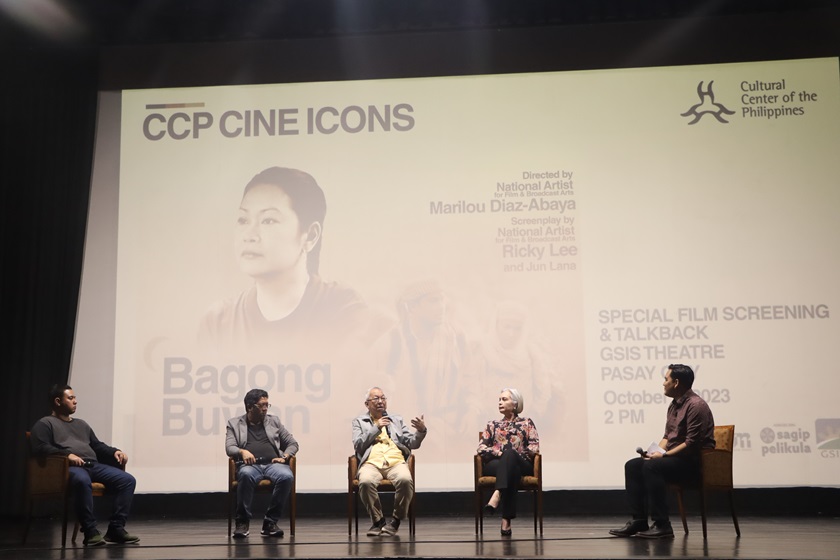
Movies have long served as a reflection of our society. As a potent form of storytelling, they vividly capture the countless and timeless aspects of human nature, enriched by visuals and sound. The art of filmmaking transcends generations, continuing to breathe life into various narratives, identities, and historical events.
“Bagong Buwan” stands as a testament to the enduring power of filmmaking. Directed by National Artist for Film and Broadcast Arts Marilou Diaz-Abaya and penned by National Artist for Film and Broadcast Arts Ricky Lee and Jun Lana, this digitally-restored version of the 2001 drama was once again screened during the 5th edition of CCP Cine Icons on October 6.

Starring luminaries like Cesar Montano, Caridad Sanchez, Amy Austria, Jiro Manio, and Noni Buencamino, Diaz-Abaya’s “Bagong Buwan” is revered as a cinematic masterpiece for its portrayal of the suffering endured by Filipino Muslims during the conflict between the Philippine government and the Moro Islamic Liberation Front.

“It was truly a time of violence,” shared Margie Moran-Floirendo, the producer of “Bagong Buwan,” during the post-screening discussion. “On our journey to Camp Abubakar, we reached a checkpoint where a young boy stood in front of our vehicle, brandishing a carved toy Armalite, pretending to ‘shoot’ us.”
However, Moran-Floirendo, a co-founder of the Mindanao Commission on Women, held firm in her belief that Muslims and Christians could coexist peacefully. She spearheaded the construction of 1,000 homes in Central Mindanao where both communities could live together in harmony.

National Artist Ricky Lee, who penned “Bagong Buwan,” attended the discussion, watching the film again after 22 years. He was moved to tears by the film’s portrayal of how Filipinos coped with the casualties of war.
“This film was an eye-opener for me,” Lee expressed. “Growing up, I had a view that Moros were violent. So we wanted to show people that these are also mothers, fathers, brothers, and children. They are not figures or violent individuals; they are people.”
Lee also shared his objective of making “Bagong Buwan” mainstream so that people could learn the story. The film was not only a box-office success, earning 13 FAMAS awards and nominations, but it was also highly appreciated by the Muslim community, much to the delight of Diaz-Abaya.
“After one premiere, a young Muslim approached Marilou, and they high-fived,” Lee added.
Diaz-Abaya invested two years in studying Islam before embarking on “Bagong Buwan.” Described by Lee as “receptive to challenges,” the filmmaker was remembered for her dedication to staying true to the story and the craft.
“Marilou stood for inner peace,” said Christian Vallez, a mentee of the late filmmaker. He recalled frequent discussions on film, haiku, calligraphy, and Zen with Diaz-Abaya. “To share peace with others, you must have it within yourself.”
Jiro Manio, who was only seven years old during the filming of “Bagong Buwan,” also shared his experiences working with Diaz-Abaya. “Direk Marilou truly became like a mother to me during our shoot. She was patient, especially during the heavy scenes, as I was scared.”
“Bagong Buwan is the culmination of women working for peace,” said Moran-Floirendo, who brought Diaz-Abaya to Mindanao. “Marilou was very passionate and had an excellent understanding of the root causes of the conflict. That’s why she wanted to pursue this project – she wanted to seek the truth.”
Having worked closely with Diaz-Abaya for years, Lee recalled that they had plans to create dual memoirs with the late filmmaker just weeks before her passing. In their recorded conversations, Lee emphasized how Diaz-Abaya would read his scripts as Ricky, not as Marilou: “She didn’t impose herself. She didn’t dismiss my ideas, even in times of disagreement.”
Cine Icons will premiere another film, “Karnal,” also directed by Marilou Diaz-Abaya and written by Ricky Lee, on November 24 at the GSIS Theatre.
CCP Cine Icons is a special program of the CCP Film, Broadcast, and New Media Division that honors the country’s newly appointed National Artists. In its 5th edition, the program paid tribute to one of the influential figures in the Second Golden Age of Philippine Cinema, Marilou Diaz-Abaya, who was recently laid to rest at the Libingan ng mga Bayani on October 8, 2023.
For the latest updates on CCP Cine Icons, follow the official CCP and CCP Film, Broadcast, and New Media Division on their social media accounts on Facebook, Twitter, Instagram, TikTok, and YouTube.







